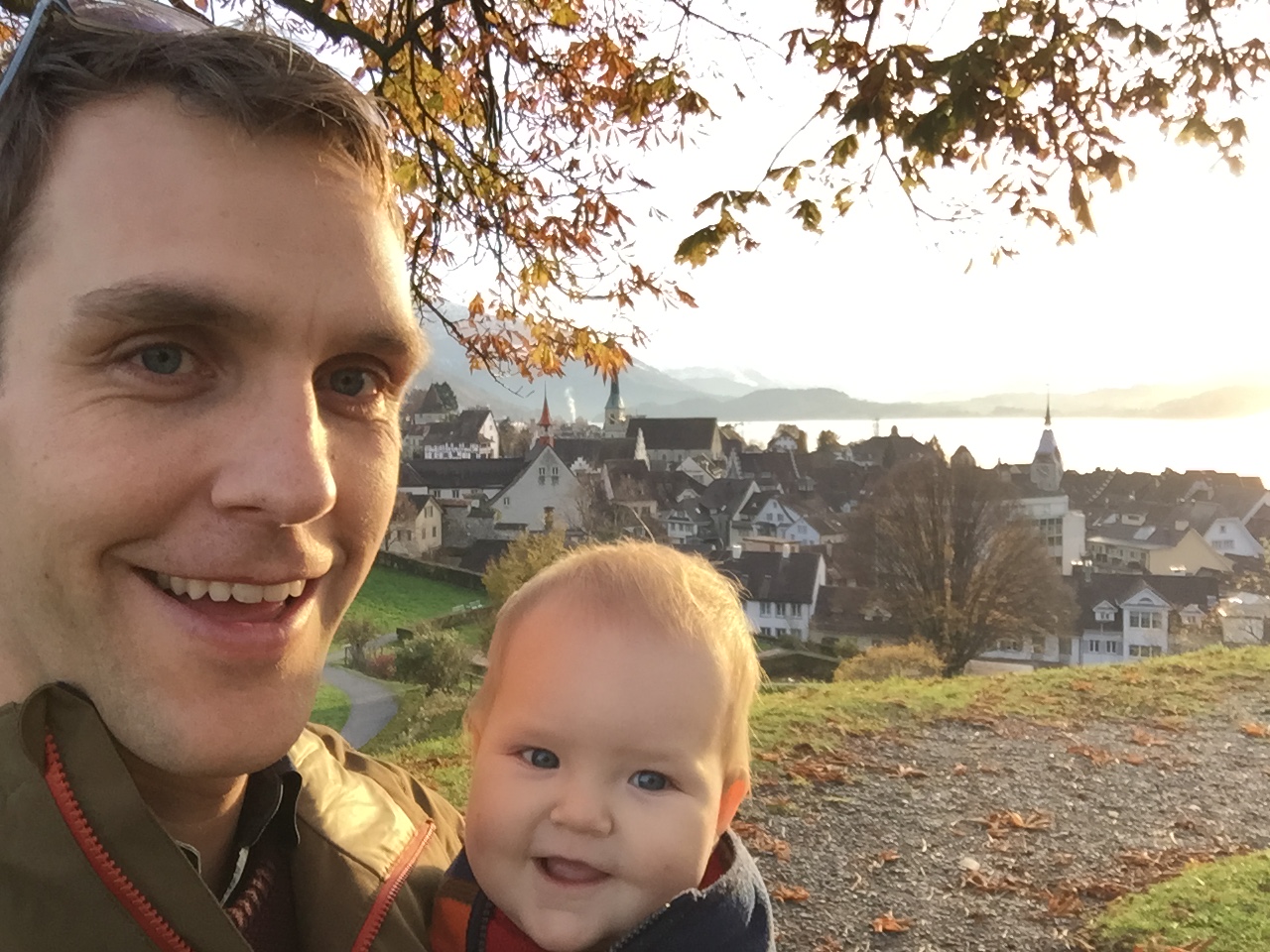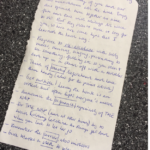
Take The Time was started out of frustration. I was sitting at my kitchen table one evening, updating my resume and LinkedIn profile before applying to a new job. I had a good education and strong work experience, but found myself struggling to erase a “gap” in my resume.
After my wife’s maternity leave ended in June 2017, I left my job to care for our young daughter. For nine months, I took up the role of primary caregiver. This was not “babysitting”, or “daddy daycare”, or even a “papadag” (as the Dutch like to call it). This was me, at home with my little girl all day, every day, learning the full depth of what parenting required.
To be honest, before my wife went back to work, I thought of myself as a pretty “modern”, emotionally-bonded and capable father. I had taken two weeks of paternity leave after the birth. I was never afraid of changing a diaper. I had already spent many broken nights trying all manner of techniques to get a fussy baby back to sleep. I also – or perhaps as a result – already felt a strong connection with my daughter and a powerful love for her. What else was there to learn?
What I failed to appreciate at the time was that because all of my physical and emotional investment in fatherhood had occurred with my partner still at home, my relationship with my daughter was not wholly my own. Don’t get me wrong, the shared experience of parenting was – and remains – one that is incredibly valuable. But, becoming the primary caregiver for a sustained period of time unlocked an entirely new appreciation for what it meant to be a parent, and a father.
There are many reasons why I feel that way, but here are the three most important:
- Responsibility. When my wife left for work every morning, my daughter’s well-being was in my hands alone. It was my job to learn how to interpret and fulfill her many unspoken needs. Her diapers and rashes, her crying and frustration, her hunger and thirst, her tiredness, her fears and pains. It was up to me to figure out how to take care of her, and the full weight of that responsibility only became clear when it was no longer possible to consult or share or discuss with my partner.
- Accomplishment: From embracing my responsibility came a profound sense of accomplishment and pride. To be sure, every day brought new challenges as our daughter developed. But, with my own self-confidence growing, I knew I could be there for her, whatever she needed. I was able to develop a happy rhythm at home, which worked for both my daughter and I as individuals, and together.
- Joy: Having established a stable, healthy home, I was able to focus on the moments of pure joy that parenthood brings. The little games we played and songs we sang. The smiles and laughter that began to fill our house. Watching my daughter’s sense of wonder when she discovered something new. Feeling my own sense of wonder when I watched her figure out a new skill, or how to solve a problem.
I am now convinced that my time as primary caregiver in that first year helped me form a bond with my daughter that I would not have been able to forge otherwise. That spending meaningful time alone with her deepened my understanding of her, and of myself. I faced my own fears, overcame my own personal challenges, and discovered my own ways of bringing happiness to her little face. In truth, the time alone with her was the greatest privilege of my life.
Yet, here I was, staring at my resume, trying desperately to hide all traces of that period in my life. Could I convince people that I had been an independent contractor during those nine months? What about if I just extended my past employment a little, making it look like I’d been employed until the fall? Would a break of six months seem less worrisome to a future employer? All of these questions and more were running through my head.
And why? Because conventional career advice instructs applicants and hiring managers the same way: gaps are bad. They signal lack of commitment. They spawn questions about focus and direction. Some people even believe gaps imply that you might have been fired from your last job: if you had left voluntarily, surely you would have secured a new job before quitting, right? Whatever the assumption, everything points to a negative. Thus, all working professionals are taught to minimize gaps.
As I was mulling all of this over, I realized something: I should embrace fatherhood on my resume, not try to erase it. Am I ashamed of the time I spent away from work? Absolutely not.
Do I think it has changed me for the better? 100% yes. Then why should I be trying to hide it? And so I started putting it on my resume: “Summer 2017-2018: Primary Caregiver”.
It seemed awkward, for sure. But it also seemed honest, and I was proud of it.
Then, I started wondering: how many others there are like me out there in the world? Working men (and women) who erase periods of parental leave from their work history because they think it will negatively impact careers. Or who cannot avoid it being noticed, and struggle to explain it when seeking a promotion or new job. Or worse, fathers who are afraid to take parental leave in the first place, because of the perceived social taboo and workplace repercussions.
And so, in that moment I decided to create Take The Time, with three aims:
- To create a community of working fathers who want to celebrate (not hide) parenthood
- To encourage new and aspiring dads to take parental leave by helping them talk to their employers, their friends and their family.
- To change the broader cultural mindset about what it means to be a working father, and the value of taking sustained parental leave.
We know none of those aims are easy to achieve. We also know that there are lots of structural impediments that make it difficult for many fathers to fully embrace parental leave. It’s a theme we will come back to in various posts in the future, but to be clear at the outset, we strongly believe that governments and organizational cultures must change, to be more encouraging of men who want to take time with their child(ren). But, we also firmly believe that governments and companies won’t change unless we as men first change our own mindset. We need to bring the issue out into the open. Stop hiding it. Stop feeling uncertain. Call out those who would judge or punish. Come together to support each other.
Change starts with us.
We need to bring a community together, in the open, and normalize parental leave for fathers. And that is what Take The Time intends to achieve. Join us!





a true game changer, adding a lot of societal value, warmly endorsed